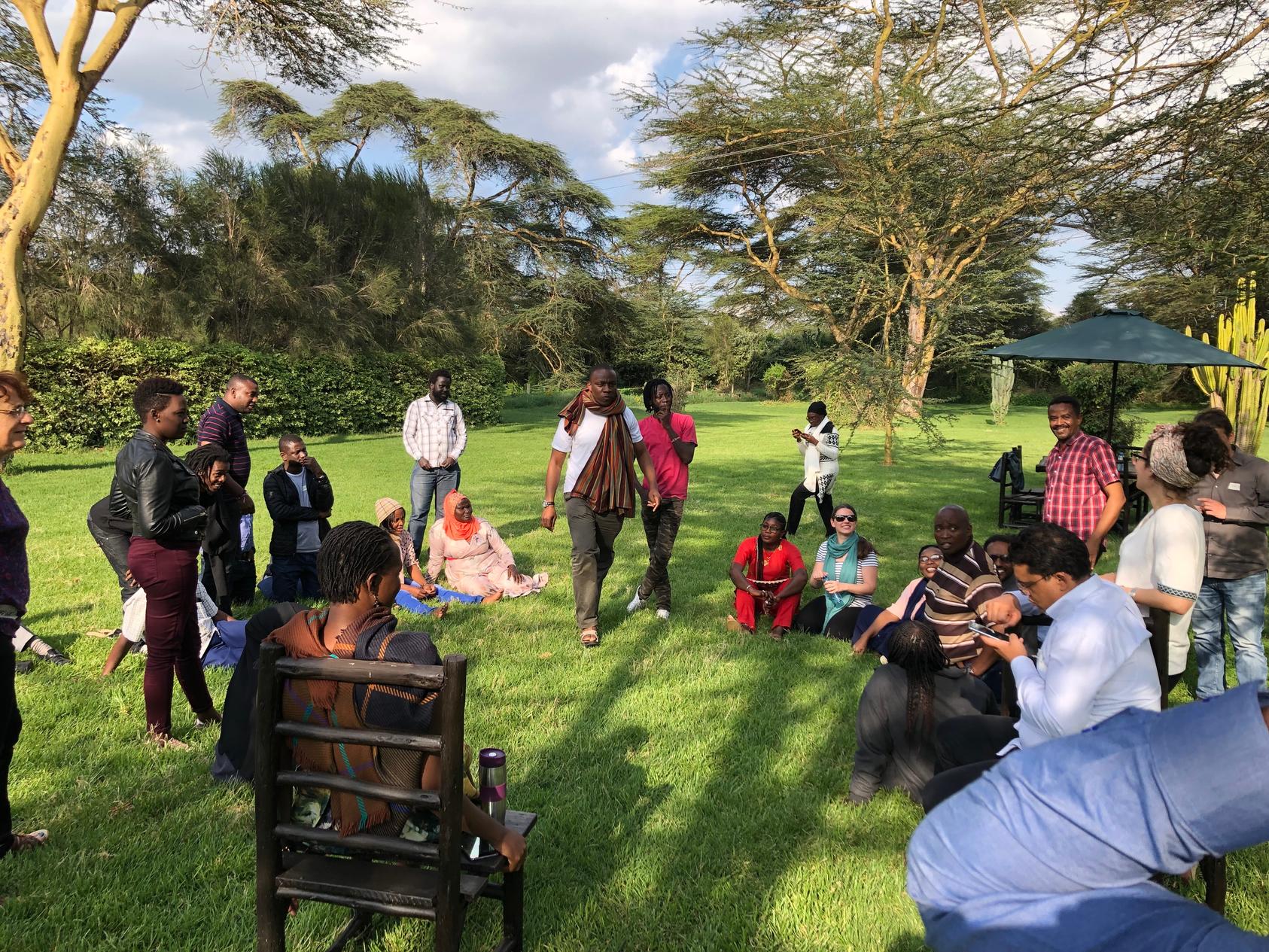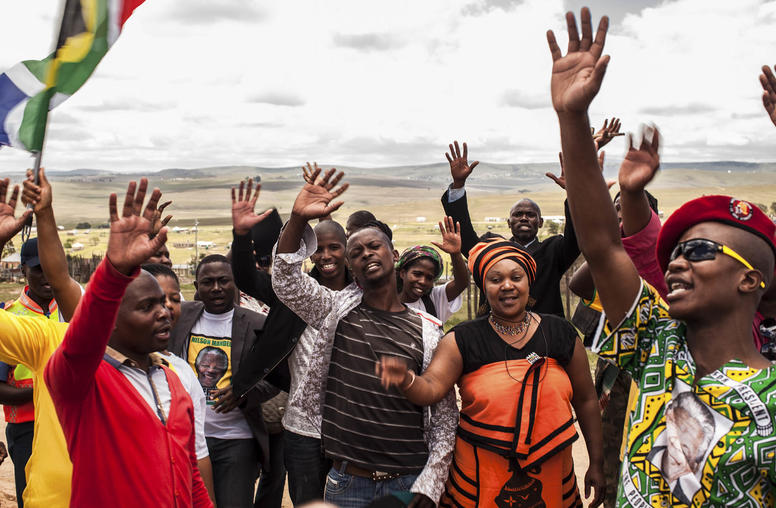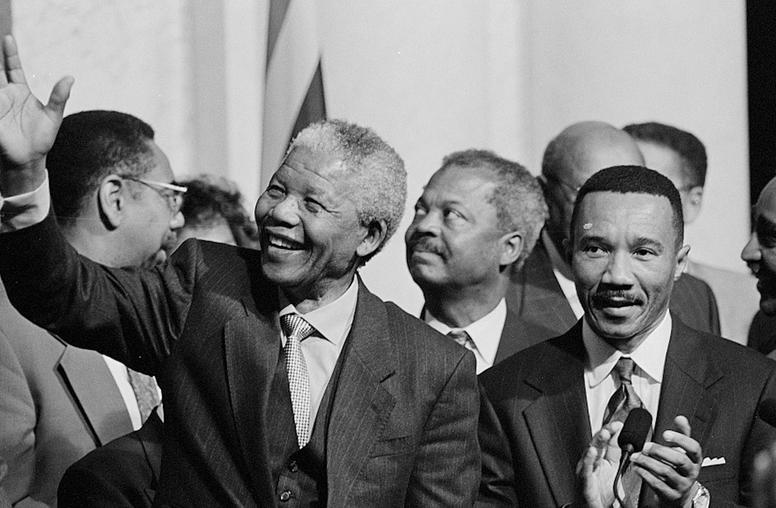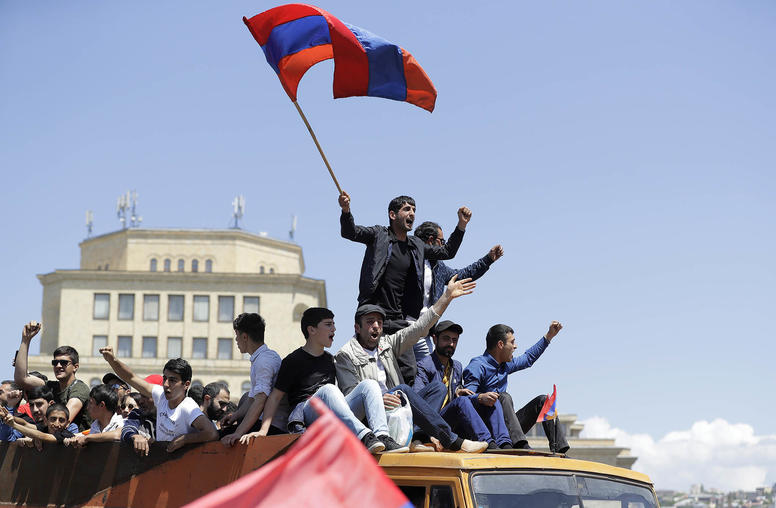Synergizing Nonviolent Action and Peacebuilding
This course, centered around the Synergizing Nonviolent Action and Peacebuilding (SNAP) Guide, seeks to illustrate how the most strategic and effective methods from Nonviolent Action and Peacebuilding can reinforce one another.

Course Overview
In 1971, feminist nonviolent activist Barbara Deming wrote about “revolution and equilibrium,” asserting that activists needed “two hands of nonviolence”—one hand with a palm facing out to say “stop the injustice!” and another offered as a handshake. Building just, inclusive, and peaceful societies requires people who are willing to take on a wide variety of approaches, including direct action, relationship building, volunteer mobilization, dialogue, and negotiation. However, some scholars and practitioners view these approaches as separate or incompatible. Grassroots activists know how to engage in nonviolent action, but they may have less experience facilitating a delicate meeting featuring diverse groups and opinions. Peacebuilders can excel at dialogue or negotiation, but they may get stuck when one group has more power than another, making it difficult to reach a just resolution. Each approach has its own history, community of practice, literature, and education and training programs.
This course seeks to reduce this separation and illustrate how the most strategic and effective methods from both fields can reinforce one another to advance justice, promote human rights, and build sustainable peace. It is for activists looking to bring together diverse coalitions, mobilize constituencies, and shift power, and for peacebuilders trying to address power asymmetries and build societal awareness of key issues to open dialogue and gain leverage in negotiations.
If you cannot view the video, click here to download it.
Agenda
Chapter 1 - Introduction to Nonviolent Action and Peacebuilding
This chapter reviews foundational concepts of nonviolent action and peacebuilding and discusses how they can reinforce one another or be “synergized.”
Chapter 2 - Power and Conflict Transformation
This chapter introduces the concept of power and how righting power imbalances can transform violent conflict. It then leads participants through an exercise to help them craft their collective values, vision, and mission statements, which will guide them in their work.
Chapter 3 - Strategic Planning and Conflict Assessment
This chapter discusses the importance of conflict assessment and gives participants the opportunity to practice using conflict assessment tools from the nonviolent action and peacebuilding fields to see how they can complement one another. It then uses this assessment to translate participants’ values, vision, and mission statements into SMARTT goals.
Chapter 4 - Nonviolent Action Tactics and Peacebuilding Approaches
This chapter provides a deeper dive into the broad range of nonviolent action tactics and peacebuilding approaches using a series of case study examples.
Chapter 5 - Planning for Action
This chapter utilizes a series of timeline and planning activities for participants to develop specific action plans based off their SMARTT goals.
Instructor and Course Guides
Instructor
- Maria J. Stephan, former Director of the program on Nonviolent Action, U.S. Institute of Peace
Guest Expert
- Nadine Bloch, Training Director, Beautiful Trouble
- Alysha G. Cieniewicz, Program Officer, U.S. Institute of Peace
- Miranda Rivers, Program Specialist, U.S. Institute of Peace
- Lisa Schirch, Senior Research Fellow, Toda Peace Institute
- Tabatha Thompson, Senior Program Officer, U.S. Institute of Peace



